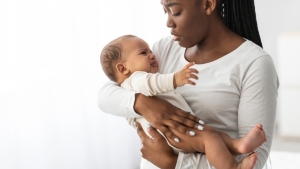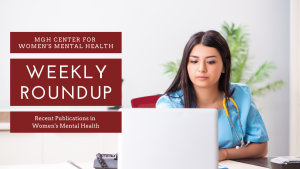Infertility can have a profound impact on the psychological well-being of the mother and her partner, and multiple studies have reported increased levels of distress, anxiety and depression in couples attempting to conceive through assisted reproductive technology (ART). But what happens after a pregnancy is achieved through ART? Previous research looking at symptoms of anxiety and depression in parents who conceive via ART have yielded mixed results. While some studies indicated that parents who conceive using ART experience increased levels of anxiety and depression, other studies do not.
In a recent prospective cohort study analyzing data from the Norwegian Mother, Father and Child Cohort Study (MoBa), researchers compared 2960 pregnant women who conceived with ART and 108,183 women who conceived spontaneously. In addition, they were able to analyze data from a subsample of expectant parents who had two consecutive pregnancies with one from ART and one conceived spontaneously (n = 286 women, n = 211 partners). In women, symptoms of anxiety and depression were assessed at two timepoints during pregnancy (gestational weeks 17 and 30). Their partners were assessed once, at 17 weeks of gestation.
The researchers found that conceiving through ART was associated with lower levels of anxiety and depression and greater relationship satisfaction, compared to spontaneous conception. Things looked a bit different in the subsample of parents who experienced both ART and spontaneous pregnancies. In this cohort, ART was associated with increased levels of maternal anxiety and depression at 17 weeks of gestation compared to spontaneous pregnancies. At 30 weeks of gestation, levels of anxiety and depression were similar across both types of pregnancies. Expectant fathers reported similar levels of anxiety and depression during both pregnancies.
Clinical Implications
This is the largest study to date examining symptoms of anxiety and depression in parents conceiving through ART compared to those conceiving spontaneously. While previous smaller studies have shown that parents who conceive through ART may experience higher levels of anxiety and depression, this study indicates that this population actually experiences lower levels of anxiety and depression. This is somewhat surprising, as we often consider pregnancies conceived using ART to be high risk, and we have a tendency to assume that the anxiety and/or depression accompanying the process of getting pregnant may continue into the pregnancy. This may not be the case.
One of the limitations of the current study is that it did not provide assessments of mood or anxiety during infertility treatment. It would be interesting to see how these symptoms change after conception. From this type of cross-sectional study, we cannot be certain that anxiety or depression in individual patients improve after conception. The study, however, sheds light on the psychological well-being of parents who conceive via ART. One might hypothesize that the additional support offered as couples pursue ART may be in some way protective.
Clinically we see many patients who experience depression or anxiety when they are unable to conceive or while pursuing infertility treatment. This study may provide reassurance to those who experience difficulties in this setting. Being able to tell our patients that couples who conceive via ART actually experience less mental health difficulties during pregnancy than those who conceive spontaneously may offer some hope.
Ruta Nonacs, MD PhD
References
Oftedal A, Tsotsi S, Kaasen A, Mayerhofer LJK, Røysamb E, Smajlagic D, Tanbo TG, Bekkhus M. Anxiety and depression in expectant parents: ART versus spontaneous conception. Hum Reprod. 2023 Sep 5;38(9):1755-1760.










